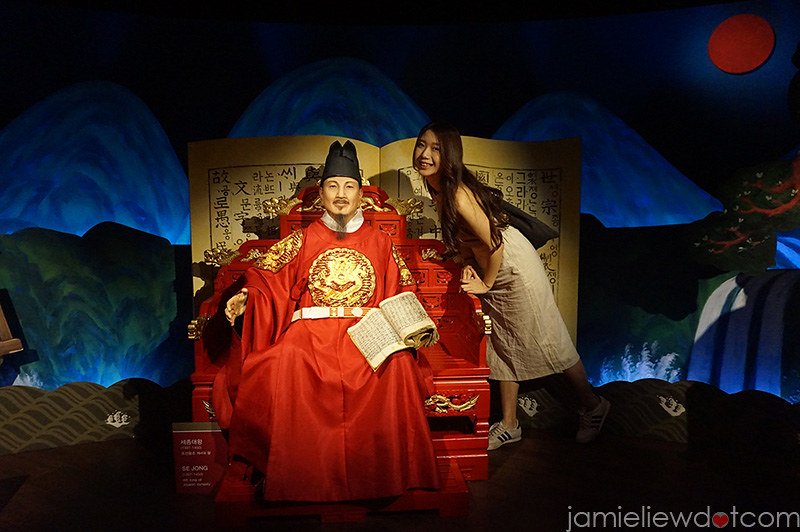• King Sejong the Great • The Great King Sejong Genre Created by Kim Sung-geun Starring Opening theme 소원 (Wish) by Country of origin No. Of episodes 86 Production Camera setup Running time Saturdays and Sundays 21:30 () Release Original network Original release January 5 – December 7, 2008 Chronology Preceded by Followed by External links The Great King, Sejong (: 대왕 세종;: 大王世宗;: Daewang Sejong;: Taewang Sejong; lit. Great King Sejong) is a 2008 historical television series depicting the life of the fourth king of, (played by ). Considered one of the greatest kings in Korean history, Sejong created, the Korean alphabet. The series aired on from January 5 to December 7, 2008 on Saturdays and Sundays at 21:30 for 86 episodes.

Bart Simpson Ay Caramba Mp3. Episodes 1 to 26 aired on, and episodes 27 to 86 aired on. Contents • • • • • Plot [ ] Born as the third prince, Chungnyeong, was far from ascending the throne.
His early years were turbulent as Korea faced political tensions from both within and abroad and facing abduction as a boy to make matters worse. Eventually the young prince finds himself living in a private residence outside of the palace and experiences the everyday life of commoners until he is a young man. Later on his ascension to the throne, Chungyeong (now called ) stabilizes the newly born country and gives rise to the blooming culture of.
The Great King Sejong. The Great King Sejong. Drama Show Documentary Culture News Join Now Premium. Tru Fire Crackshot Thumb Release. MVibo Korean Drama, Show Documentary, Culture, News. Sejong facts: Sejong (1397-1450) was a Korean king and inventor of the Korean alphabet. His long reign, 1418-1450, is generally acknowledged to have been the most. King Sejong the Great: The Everlasting Light of Korea (Korean Spirit and Culture, Series, No. By Diamond Sutra Recitation Group.
In the process he invents, the Korean writing system.
King Sejong the Great The greatest person in Korean history Including the fields of Politics, Economy, Culture, Military, as a matter of course, Numerous achievements of King Sejong had developed Joseon into the most powerful and most scientifically advanced country in East Asia. In 1441, He invented Cheugugi, an instrument to measure precipitation by collecting raindrops. In 1434, he invented Jagyeongnu, a time alarming machine with an automatic system of a bell, jing, and drum resounding at exact moment by water. And 1443, King Sejong created Korean alphabet (Hangeul), which is recognized as the best letter system in the world.
What was the motivation that made it possible to gain such successes in his era? Why were there so many brilliant people especially in his era? What was the power of King Sejong that made Joseon the most scientifically developed country of East Asia? No.1 People’s happiness was the number one concern of his politics. King Sejong was a great king who always considered people’s hardship and tried to do his best to make people’s life better.
“If I have to choose two among army, finance, and people’s mind, I will discard army. If I have to choose one between the rests, I will discard finance, The thing that should not be discarded till the last is people’s trust and their mind.” In order to achieve agricultural enhancement, which was the fundamental resource of the nation, King Sejong researched many technologies needed in farming and published many books on them. The reason for developing the epoch breaking rice planting skills and the Korean udometer called ‘Cheugugi’, used in gauging rain fall, also was to enhance the agricultural abilities, and eventually, to improve the lives of the citizens. The most apparent example of King Sejong’s affection towards the nation was the establishment of the Korean alphabet ‘Hangeul’. King Sejong established ‘Hangeul’ despite the strong objections from many government officials, who were maintaining their power by using Chinese that the common could not easily understand. On the other hand, anyone could easily learn and write this newly established language. The ultimate purpose of the establishment of ‘Hangeul’ was to eliminate the hardships of the illiterate and to enhance their lives.